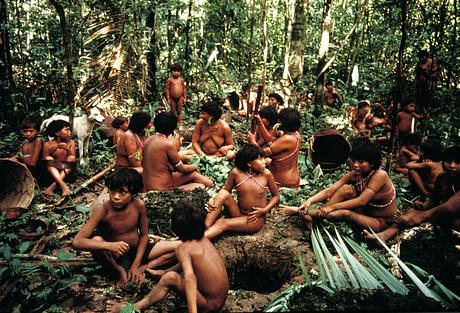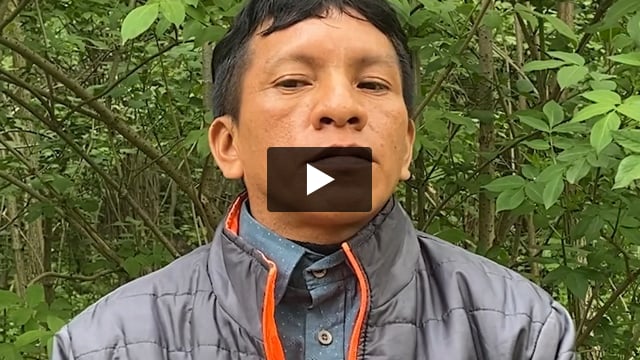Violence, death and disease still afflict Yanomami in Brazil
August 7, 2023
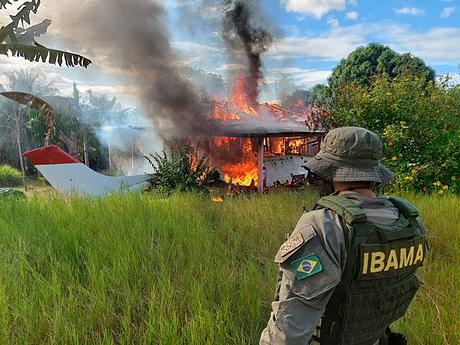 © Ibama
© IbamaSix months after the Brazilian government launched its emergency operation to remove illegal goldminers and address the humanitarian crisis in the Yanomami Territory, the results are mixed: many Yanomami continue to endure the fallout from years of invasion and violence.
Three Yanomami and Ye’kwana organizations launched a report on August 2nd - “We are still suffering” - on the emergency operation. While recognizing progress made, it raises grave concerns over widespread insecurity in some regions as pockets of armed miners remain in the territory. It also highlights the fact that malaria, malnutrition and respiratory diseases are still blighting the lives of many.
It makes 33 recommendations and calls on the authorities to consult and work with the Yanomami and Ye’kwana peoples.
Yanomami and Ye’kwana leaders met in July to discuss the situation, noting in a statement that: “The results of the actions taken to date are far from sufficient. The miners continue to enter and destroy our forest. We are still dying from lack of health care both inside our territory and outside it, when our relatives are removed and have to spend a long time suffering in the city.”
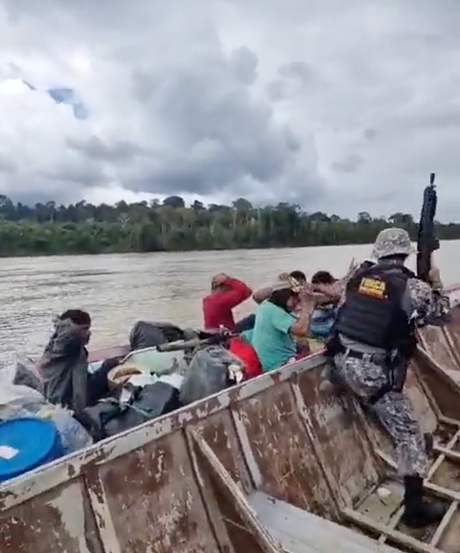 © Força Nacional Brasileira
© Força Nacional Brasileira
The Bolsonaro government actively encouraged and facilitated illegal mining in Indigenous territories; by 2022 over 60% of the Yanomami population was impacted by mining with appalling consequences on their health and livelihoods. Mining is responsible for much of the spread of malaria, as mosquito larvae breed in the stagnant waters in the huge craters created by the miners.
The operation launched by the Lula government at the beginning of February aimed to remove the estimated 25,000 illegal miners. It has made significant progress and last month the Minister for Indigenous Peoples, Sonia Guajajara, declared that 82% of the miners had been removed from the territory.
However, significant groups of armed miners and criminal gangs remain and are violently resisting removal whilst continuing to extract gold (reportedly hiding equipment and working at night to avoid detection) and terrorize communities.
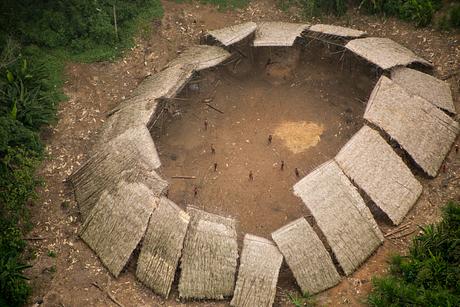 © Guilherme Gnipper Trevisan/FUNAI/Hutukara
© Guilherme Gnipper Trevisan/FUNAI/Hutukara
An operation in February destroyed a mining camp very near a community of uncontacted Yanomami, known as the Moxihatatea, who were at extreme risk of attack from the miners. Their fate is unknown – an aerial photo of their large yano (communal house) shows it is empty but in good condition. Any contact between them and the miners could be fatal, as they have no resistance to common diseases such as flu.
In early July a 5-year-old Yanomami girl was killed and several Yanomami wounded when miners attacked a community in the region of Parima. On 30 April, three Yanomami were shot by miners in Uxiu community – one died soon after the attack.
Miners have also attacked Federal Police and Environment Ministry officials, resulting in deaths on both sides. A base controlling one of the main river entry points into the Territory has been attacked at least five times since it opened on February 20.
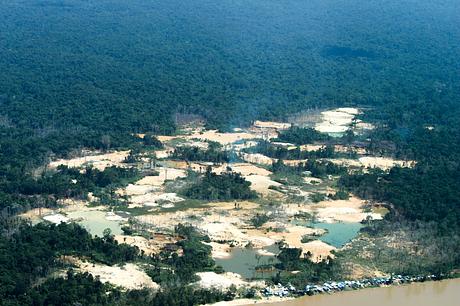 © FUNAI
© FUNAI
Despite efforts by the Ministry of Health, which has built an emergency field hospital in the heart of the territory, the health of many Yanomami and Ye’kwana communities remains critical and people are still dying of treatable diseases.
According to the authorities, 157 Yanomami have died since January – most were between 0 and 4 years old. The real figure will be significantly higher as deaths are undereported. Children are still being treated for malnutrition.
Food security is a major issue – many Yanomami are still either too weak from malaria and respiratory diseases to tend their gardens and feed their families or their gardens have been destroyed by mining. A Yanomami woman from Uxiu said: “We are all ill and thin with bloated bellies. There’s no more food in the forest because the forest is destroyed.”
A Yanomami woman from Papiu explained: “The miners are getting nearer and nearer which is why we can’t go to our gardens and collect manioc. Malaria has spread all over, it’s very bad.”
Malaria is still rife and continues to have a lethal impact. Vital health care is not reaching remote communities for lack of infrastructure, continued closure of some health posts, and because health workers are concerned for their safety due to armed mining groups still operating.
Studies by the Federal Police found that rivers in the Yanomami Territory are highly contaminated with mercury - 8,600% above safety levels and that Indigenous people from 14 regions in the Yanomami Territory have high levels of mercury contamination.
Responding to the Yanomami and Ye’kwana’s concerns, the Ministry of Indigenous Peoples says it “recognizes that there are still issues to be resolved involving the Yanomami Indigenous Territory, but rebuilding the damage that has been done over years of neglect takes time.”


